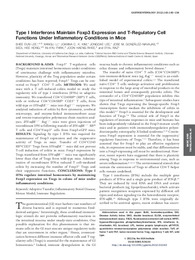Por favor, use este identificador para citar o enlazar este ítem:
https://hdl.handle.net/11000/35487Registro completo de metadatos
| Campo DC | Valor | Lengua/Idioma |
|---|---|---|
| dc.contributor.author | Lee, Shee Eun | - |
| dc.contributor.author | Li, Xiangli | - |
| dc.contributor.author | Kim, Joanna | - |
| dc.contributor.author | LEE, JONGDAE | - |
| dc.contributor.author | González-Navajas, Jose Manuel | - |
| dc.contributor.author | HONG, SEOL HEE | - |
| dc.contributor.author | Park, In Kyu | - |
| dc.contributor.author | Rhee, Joon Haeng | - |
| dc.contributor.author | Raz, Eyal | - |
| dc.contributor.other | Departamentos de la UMH::Farmacología, Pediatría y Química Orgánica | es_ES |
| dc.date.accessioned | 2025-01-30T07:45:53Z | - |
| dc.date.available | 2025-01-30T07:45:53Z | - |
| dc.date.created | 2012-07 | - |
| dc.identifier.citation | Gastroenterology. 2012 Jul;143(1):145-54 | es_ES |
| dc.identifier.issn | 1528-0012 | - |
| dc.identifier.issn | 0016-5085 | - |
| dc.identifier.uri | https://hdl.handle.net/11000/35487 | - |
| dc.description.abstract | Background & aims: Foxp3(+) T-regulatory cells (Tregs) maintain intestinal homeostasis under conditions of continuous challenge with inflammatory microbes. However, plasticity of the Treg population under certain conditions has been reported; Foxp3(+) Tregs can be converted to Foxp3(-) CD4(+) T cells. Methods: We used mice with a T cell-induced colitis model to study the regulatory role of type I interferons (IFNs) in adaptive immunity. We transferred CD4(+)CD45RB(hi) (RB(hi)) T cells, with or without CD4(+)CD45RB(lo) CD25(+) T cells, from wild-type or IFN-αβR(-/-) mice into Rag1(-/-) recipients. We analyzed induction of colitis by flow cytometry, confocal microscopy, and enzyme-linked immunosorbent assay and reverse-transcription polymerase chain reaction analyses. IFN-αβR(-/-)Rag(-/-) mice were given injections of recombinant IFN-α following transfer of IFN-αβR(-/-) RB(hi) T cells and CD4(+)Foxp3(+) cells from Foxp3-eGFP mice. Results: Signaling by type I IFNs was required for maintenance of Foxp3 expression and the suppressive activity of Tregs in mice. Transfer of CD4(+)CD45RB(lo)CD25(+) Tregs from IFN-αβR(-/-) mice did not prevent T-cell induction of colitis in mice. Foxp3 expression by Tregs transferred from IFN-αβR(-/-) mice was significantly lower than that of Tregs from wild-type mice. Administration of recombinant IFN-α reduced T cell-mediated colitis by increasing the number of Foxp3(+) Tregs and their suppressive functions. Conclusions: Type I IFNs regulate intestinal homeostasis by maintaining Foxp3 expression on Tregs in colons of mice under inflammatory conditions. | es_ES |
| dc.format | application/pdf | es_ES |
| dc.format.extent | 10 | es_ES |
| dc.language.iso | eng | es_ES |
| dc.publisher | W.B. Saunders | es_ES |
| dc.rights | info:eu-repo/semantics/openAccess | es_ES |
| dc.rights | Attribution-NonCommercial-NoDerivatives 4.0 Internacional | * |
| dc.rights.uri | http://creativecommons.org/licenses/by-nc-nd/4.0/ | * |
| dc.subject | Adoptive Transfer | es_ES |
| dc.subject | Inflammatory Bowel Disease | es_ES |
| dc.subject | Mouse Model | es_ES |
| dc.subject | Immune Regulation | es_ES |
| dc.title | Type I Interferons Maintain Foxp3 Expression and T-Regulatory Cell Functions Under Inflammatory Conditions in Mice | es_ES |
| dc.type | info:eu-repo/semantics/article | es_ES |
| dc.relation.publisherversion | 10.1053/j.gastro.2012.03.042 | es_ES |

Ver/Abrir:
Type I Interferons Maintain Foxp3 Expression and T-Regulatory Cell.pdf
1,4 MB
Adobe PDF
Compartir:
 La licencia se describe como: Atribución-NonComercial-NoDerivada 4.0 Internacional.
La licencia se describe como: Atribución-NonComercial-NoDerivada 4.0 Internacional.
.png)